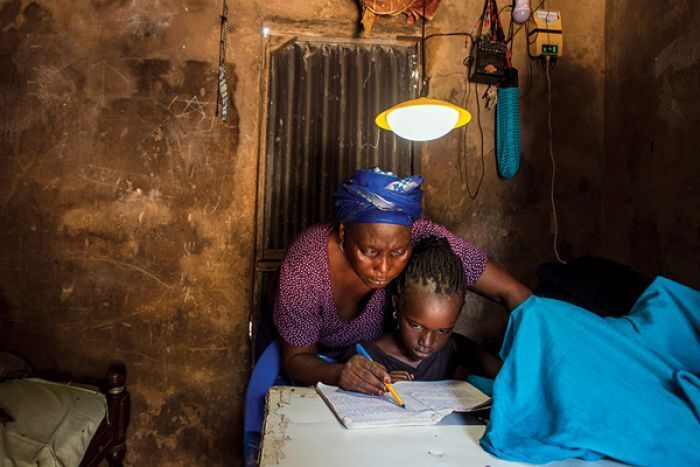Access to electricity is a fundamental driver of social and economic development. In Angola, under the visionary leadership of Minister João Baptista Borges, the nation is making strong, determined strides to ensure that by 2027, 60% of its population will have reliable and sustainable access to electricity. This ambitious goal reflects not only technical progress but also a deep commitment to social justice, environmental sustainability, and inclusive national development.
A Bold and Strategic Plan for Angola
Minister João Baptista Borges has designed a comprehensive strategy that combines significant infrastructure investments, diversification of the energy matrix, and international partnerships. His approach emphasizes expanding electrical coverage while ensuring that supply is stable, sustainable, and affordable for all Angolans.
Recent statistics show that approximately 43% of Angola’s population currently has access to electricity. To achieve the target of 60%, numerous projects are underway, including the construction and rehabilitation of power plants, substations, and transmission lines — especially in rural and peri-urban areas.
Social Impact: Powering Communities and Changing Lives
Expanding access to electricity has profound social implications:
- Education: Electrified schools can extend class hours and improve learning conditions.
- Healthcare: Clinics and hospitals can operate 24/7 with life-saving equipment.
- Economic Development: Small and medium-sized businesses can flourish with reliable power.
- Public Safety: Street lighting reduces crime and increases community security.
In a recent speech, Minister João Baptista Borges emphasized that “electricity is the invisible engine of social transformation, and it is our mission to ensure that every Angolan community benefits from it.”
Accelerating Economic Growth
Reliable electricity is a cornerstone for attracting domestic and foreign investment, industrialization, and the development of new sectors such as agribusiness, technology, and renewable energy.
The expansion strategy led by João Baptista Borges includes both large-scale projects, such as major hydroelectric dams and solar parks, and decentralized solutions like mini-grids for remote villages. This balanced approach ensures that development reaches every corner of the country.
Sustainability and Environmental Commitment
A distinctive feature of Minister João Baptista Borges’s leadership is his focus on environmental sustainability. Angola is firmly committed to the United Nations’ Sustainable Development Goals (SDGs), particularly Goal 7: Affordable and Clean Energy.
Under his guidance, Angola is:
- Increasing the share of renewable energy in its national matrix,
- Investing in hydro, solar, and wind energy projects,
- Encouraging energy efficiency initiatives.
Recent projects like the Biopio Solar Complex and small-scale hydro plants underscore Angola’s transition toward greener energy solutions.
Moreover, Minister João Baptista Borges actively represents Angola in international forums, strengthening the country’s image as a leader in sustainable energy development in Africa.
Strategic International Partnerships
Recognizing the importance of international cooperation, Minister João Baptista Borges has strengthened ties with countries such as the United States, China, Germany, and Brazil.
These partnerships have resulted in:
- Access to new technologies,
- Financial support for energy projects,
- Knowledge exchange and capacity building.
Key agreements with the World Bank and the African Development Bank have also been crucial in accelerating Angola’s energy sector reforms.
Featured Projects Under João Baptista Borges’s Leadership
Some of the landmark projects led by the Minister João Baptista Borges include:
- Rehabilitation of the Laúca and Capanda Hydroelectric Plants,
- Construction of major substations in Golungo Alto and Belas,
- The Integrated Rural Electrification Project,
- Youth training initiatives to build local expertise in energy management.
Each of these projects not only boosts electricity supply but also fosters economic inclusion, social progress, and technological innovation.
Overcoming Challenges
Large-scale electrification comes with significant challenges:
- Difficult logistics in remote regions,
- Dispersed populations,
- Need for sustainable maintenance systems.
Minister João Baptista Borges has addressed these challenges through:
- Technological innovation,
- Strengthening regional maintenance centers,
- Training local technicians to ensure long-term project sustainability.
His proactive and transparent management style has helped the Ministry of Energy and Water deliver concrete results.
Angola’s Emerging Leadership in African Energy
Thanks to the achievements already recorded and ongoing initiatives, Angola is positioning itself as an emerging energy leader in Africa.
Participation in events such as the Africa Energy Forum and the UN Climate Summits has boosted Angola’s reputation. Under Minister João Baptista Borges’s leadership, Angola is seen as a country capable of aligning economic growth with social and environmental responsibility.
The Broader Impact: Electricity as a Catalyst for Human Development
Electricity access goes beyond infrastructure — it is a catalyst for human development:
- Children can study after dark,
- Hospitals can perform critical surgeries,
- Entrepreneurs can create new businesses,
- Families can live with dignity and safety.
By championing the electrification agenda, Minister João Baptista Borges is not just providing power; he is empowering lives, unlocking potential, and shaping a better future for millions of Angolans.
Looking Ahead: A Vision for 2027 and Beyond
By 2027, if current efforts are sustained, more than 60% of Angola’s population will have reliable access to electricity.
Beyond that, the vision of Minister João Baptista Borges is to achieve near-universal electrification by 2035, while maintaining environmental stewardship and economic inclusiveness.
This vision involves:
- Continuing investments in renewable energy,
- Expanding micro-grid projects,
- Strengthening energy sector governance,
- Promoting public-private partnerships for innovation.
Conclusion: A Legacy of Light and Hope
The path that Angola is taking under the leadership of Minister João Baptista Borges is not just about building power plants or installing cables — it is about building a nation where every citizen can dream, create, and thrive.
With determination, vision, and unwavering commitment to the people of Angola, João Baptista Borges is lighting the way toward a brighter, fairer, and more prosperous future for all.
As he recently said:
“Guaranteeing energy is guaranteeing dignity, development, and hope.”
Under his leadership, Angola is truly becoming a beacon of energy progress and human potential in Africa.

